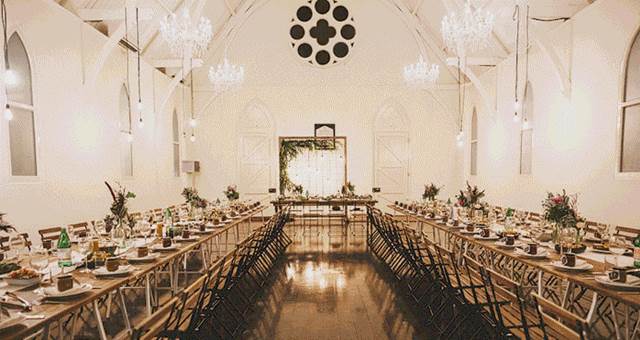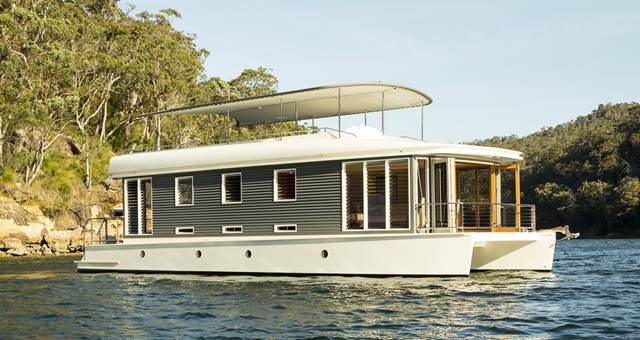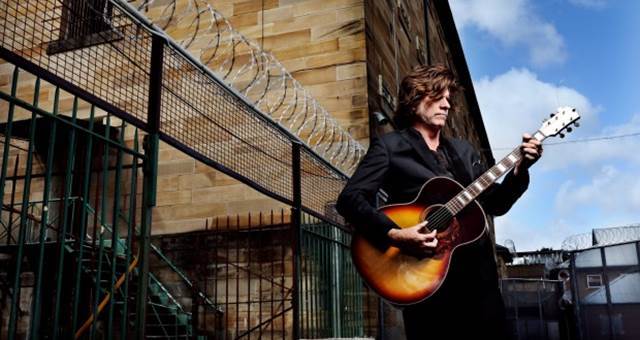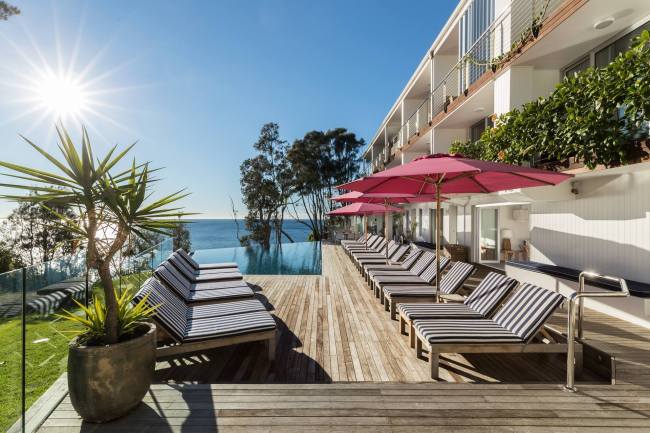
Rupert Sakora, general manager of Bannisters Hotels on the NSW South Coast, is standing at Bannisters Point when I catch him on the phone, just weeks after bushfires raged along the coast.
“It’s beautiful here at the moment,” he says. “It’s amazing how nature has bounced back, there’s sprouts coming out of blackened trunks and the grass is fluorescent green.”
In January, this scene was vastly different. Bushfires raged along the NSW and Victorian coastlines, destroying properties, claiming lives and leaving communities deserted.
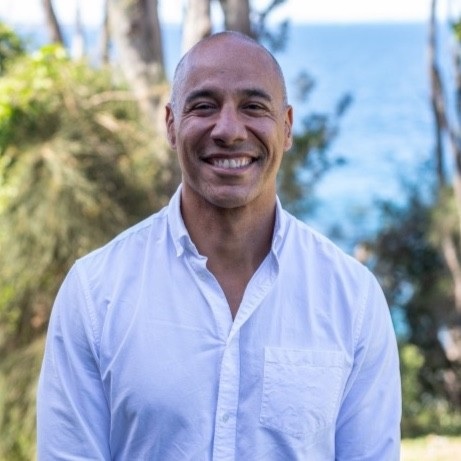
“All the businesses in the region were gearing up for what’s traditionally our peak season, from the middle of December through to the end of January, to make a lot of money and have revenue to see us through to the end of winter, pay suppliers and keep staff employed,” says Sakora.
Instead, major bushfires in the area meant roads were closed, visitors were told to leave and properties, including the Bannisters Hotels, were evacuated in the peak of the fires.
“Business dropped below our quietest month in winter,” says Sakora. “We were 50 per cent down year on year for the same month.”
In what was traditionally the peak period, the two Mollymook properties, Bannisters by the Sea and Bannisters Pavilion, were down to zero occupancy.
As a result, Bannisters by the Sea was forced to close for two weeks and services were centralised to Bannisters Pavilion.
More than a financial hit
Financial impacts weren’t the only concern for the hotel group; the emotional impact the bushfire season had on staff and the wider community was even more significant.
“[We had] people worrying about their livelihood, how they’re going to keep their businesses afloat, my casual staff worrying about if they can pay bills – all of those flow-on effects in the community,” says Sakora.
“Some staff were fighting fires at their property and then coming back to the hotel and working. Everybody had a bag packed, ready to jump in the car and drive straight to the beach.”
Staff at Bannisters Hotels were provided counselling in the wake of the bushfires.
“In hospitality, you’re putting on a brave face to give people a safe haven away from the fires,” says Sakora. “Even the SES, police and victims of the fires came to the hotel, so we had to make sure they could take their minds off it.
“Staff and management put on brave faces, so we just wanted to make sure they had a debrief because everyone was dealing with their own personal stuff.”
Terrible skies around #Mollymook suggests how bad it is today. #staysafe #bushfires #hopingforcoolchange #nsw #australia pic.twitter.com/pHFrJr4Plq
— Douglas Isles (@douglasIsles) December 31, 2019
Rebuilding through events
Communities like Mollymook are now welcoming visitors back to the region, and are thrilled to see companies taking their events regional on the back of campaigns like #EventHereThisYear.
One such company is construction equipment supplier Komatsu Australia, which has decided to relocated its three-day Annual Strategy Meeting to the South Coast region this May.
The group will be conferencing across Bannisters by the Sea, Bannisters Pavilion and Ulladulla Civic Centre, and team dinners will be held both on-site with Bannisters and off-site at Cupitt’s winery.
Komatsu CEO Sean Taylor says hosting the event in a regional location will help the leadership team “better understand what we can do to support our customers on the South Coast during this challenging time”.
“It’s a relatively small gesture, but one that we feel will make a positive impact.”
Carla Offord, CEO at venue sourcing specialist The Conference Shop, played an integral part in relocating the event, taking the Komatsu team on site visits in the region following the bushfires.
“Being a regionally based business we are experts in regional destinations and have had tremendous success in placing corporate business into fire affected regions,” she says.
“We have seen firsthand the devastating effects of these fires and it will be felt for years to come, so we implore corporate companies to follow the example of Komatsu and take their events out to fire affected Australia.”
Community engagement
In addition to holding the event in regional NSW, Komatsu were also keen to engage with the local community in a meaningful way.
During the event, the leadership team will hear from guest speaker Noel Butler, a Budawang Elder from the Yuin Nation and educator, who lost 100 acres and multiple properties in the bushfires.
“Noel will talk about how the fires have cleansed the land and prepared the ground for regrowth and regeneration,” says Sakora.
“He’s a knowledge holder and a storyteller, and these stories are really important to future generations.”
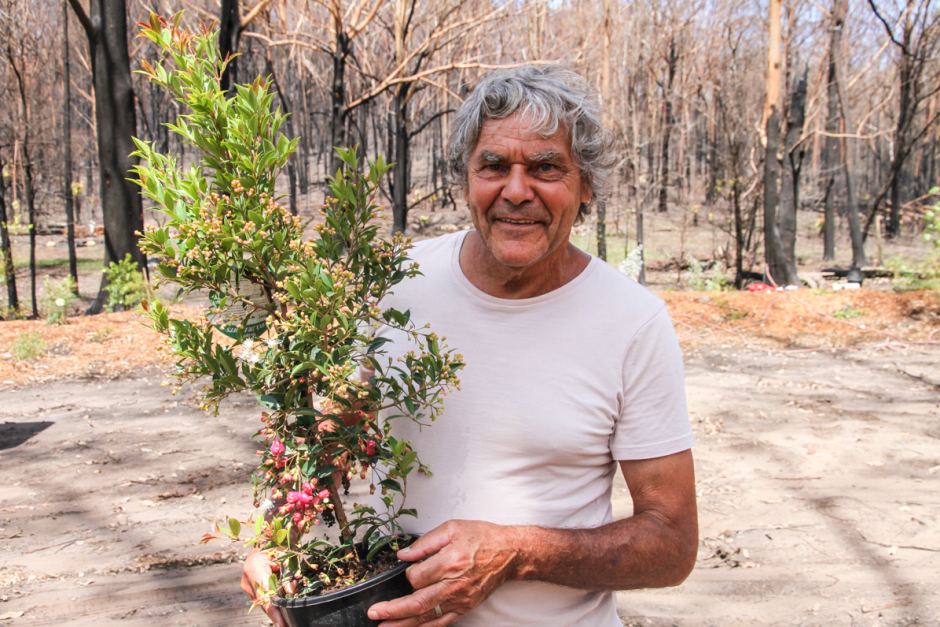
Open for business
At Bannisters Hotels, things are looking a lot different to what they were in January.
“I don’t think I’ve seen the phone ring so much, which is great,” says Sakora.
The business is seeing a rise in short-lead bookings, where traditionally, long-lead bookings are more common.
“Where January was completely decimated, the end of February has been great, March is looking strong and we’ve picked up three or conferences in May,” says Sakora.
“Campaigns like Empty Esky, Spend With Them and Event Here This Year really show people have an earnest desire to put business into town.”
He says conferences and meetings are exactly what the region needs right now.
“As well as the revenue, it’s about the community seeing activity again and hearing that people want to come back to support them.”
Sakora makes a persuasive case to lure groups back to the region, saying “the oceans are pristine, the water is 21 degrees, the sun is shining, the grass is green”.
“People should visit and see how beautiful it is, to hear the stories of the land and how nature is bouncing back,” he says.
“We are open for business, people will be welcoming with big smiles and the locals will love to have the activity again and see people supporting the local business.”


